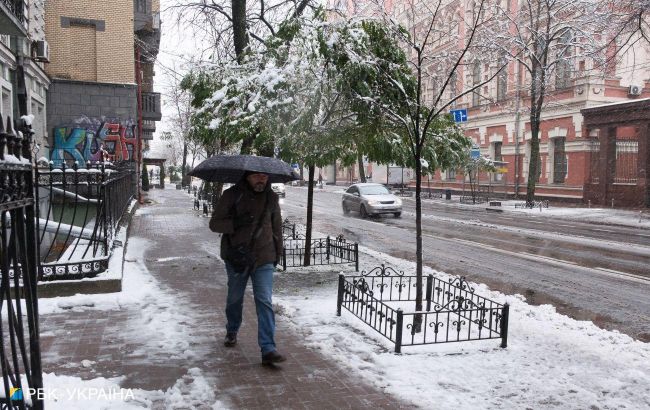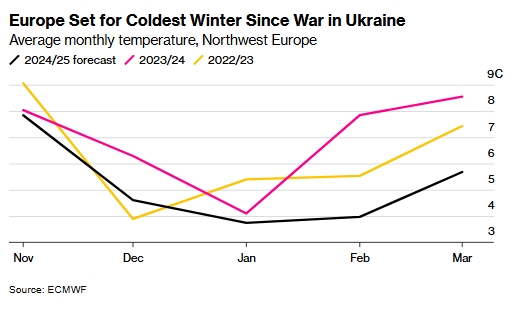Europe faces coldest winter since Russia's invasion of Ukraine - forecasters
 Photo: Winter in Europe will be the coldest since the beginning of Russia's war against Ukraine (Vitalii Nosach, RBC-Ukraine)
Photo: Winter in Europe will be the coldest since the beginning of Russia's war against Ukraine (Vitalii Nosach, RBC-Ukraine)
Europe is facing its coldest winter since Russia's full-scale invasion of Ukraine. That could also welcome a rise in already high energy prices as the continent uses up its gas reserves faster than usual, Bloomberg reports.
Temperatures between now and March are expected to remain largely below levels seen in the past two years, according to the European Center for Medium-Range Weather Forecasts, compiled by Bloomberg.

Source: ECMWF
However, this winter, like the previous two, temperatures are expected to remain above seasonal norms, according to Maxar Technologies.
However, the continent remains vulnerable to weather shocks. A cold winter will increase pressure on already high gas and electricity prices. This may coincide with the suspension of gas supplies through Ukraine on January 1, when temperatures typically drop to their lowest levels.
Frosty weather and low winds have already led to faster-than-usual withdrawals of gas from storage facilities this month. This is raising concerns about the end of winter and next summer's replenishment season.
The escalation of Russia's war against Ukraine increases energy risks for Europe.
Winter forecasts
According to Andrew Pedrini, a meteorologist at Atmospheric G2, any extended periods of colder weather will be caused by the so-called Sudden Stratospheric Warming weather phenomenon, which leads to a weakening of the polar vortex. The polar vortex is a dynamic that confines colder conditions to the Earth's poles.
“We are currently closely monitoring the November pattern, as it is looking more in line with those of winters that did have an SSW eventually,” Pedrini said. This could “slightly” increase the likelihood of such an event later this winter, he added.
According to Matthew Dross, a meteorologist at Maxar, mild conditions are expected to be mainly in northern and central Europe, with lower temperatures concentrated mainly in the south, such as Italy and the Balkans.
According to Weather Services International, temperatures are expected to drop in December, with heating demand across Europe rising to levels above seasonal norms. In Oslo, the average temperature is forecast to drop to -12 degrees on December 8, 9 degrees below the 30-year average.

